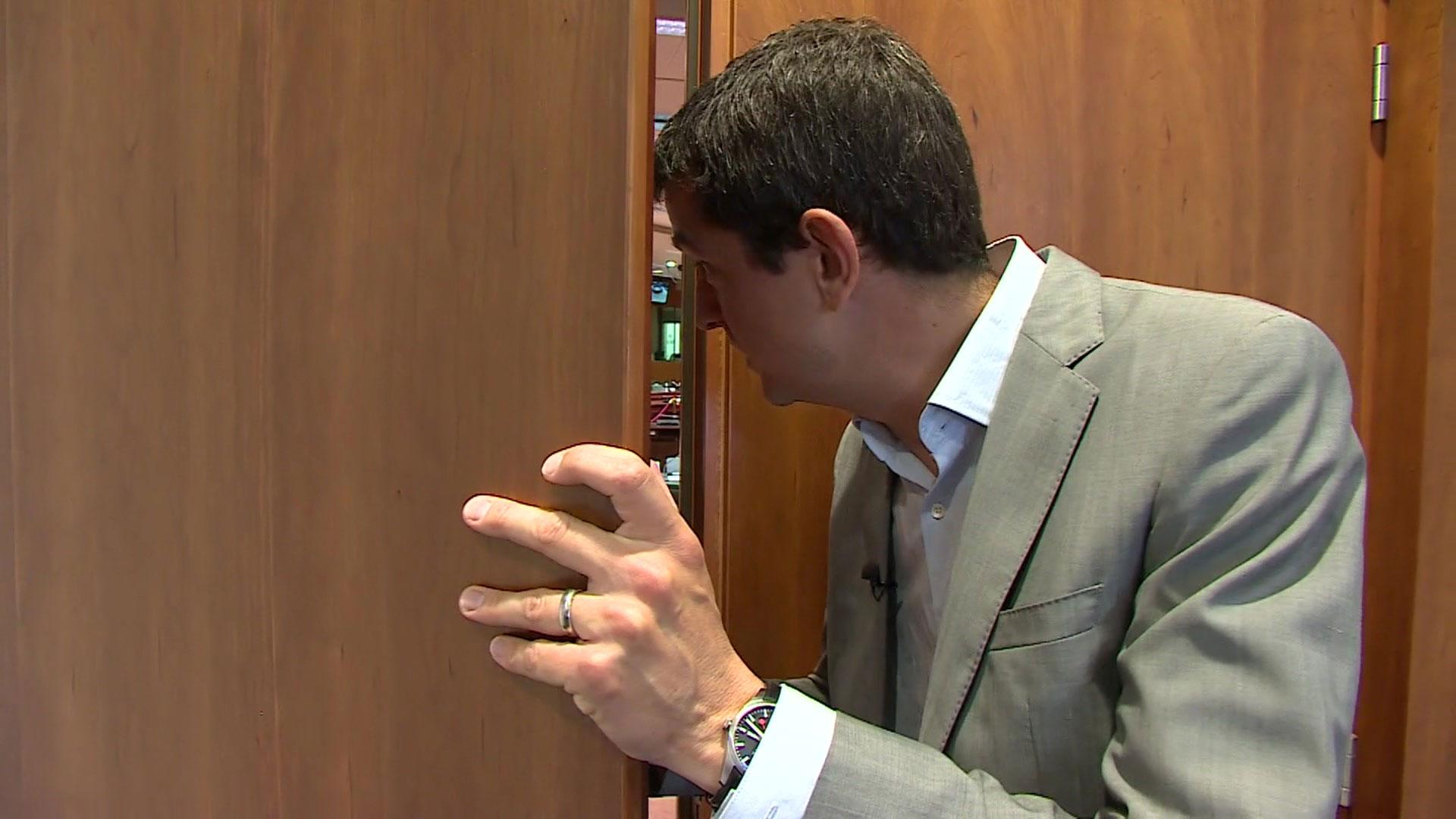EU referendum: Why can't Brussels be simpler?
- Published
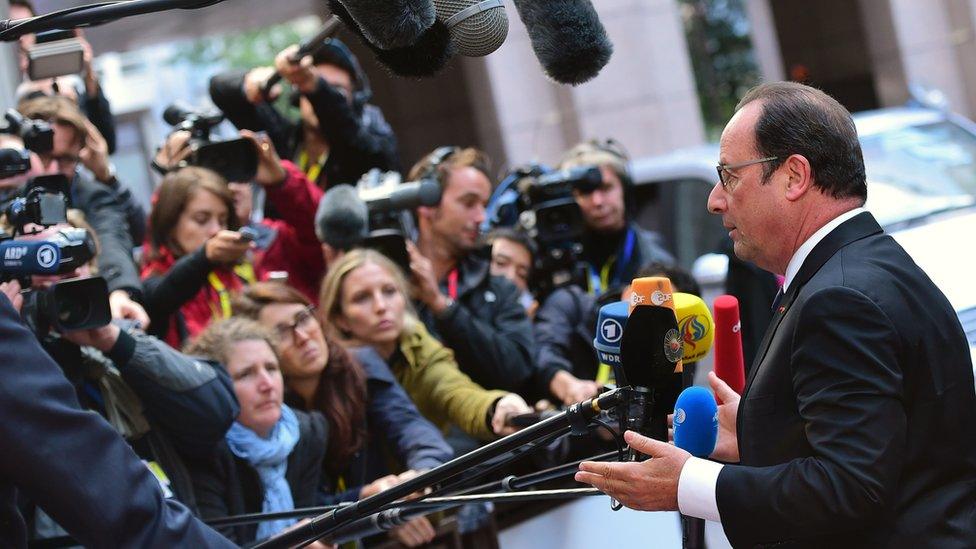
Journalists seek clarity from French President Francois Hollande at an EU summit (file pic)
The difficulty of determining how many UK laws originate in the EU illustrates how daunting the job of reporting the EU can be for journalists.
Buried statistics, convoluted decision-making, endless jargon - these were just some of the complaints raised at a London conference examining how the British media report "Brussels".
The UK's EU debate was famously spiced up by a televised head-to-head in 2014 between UK Independence Party leader Nigel Farage (Eurosceptic) and the then Deputy Prime Minister Nick Clegg (Liberal, pro-EU).
They gave wildly divergent figures for the quantity of UK laws "made in Brussels" - Mr Farage said it was 70%, while Mr Clegg said 7%.
It will be among the important issues for UK voters to consider in the run-up to the in-out referendum on EU membership.
There is intense speculation that the vote - potentially a turning-point in British history - could be held on 23 June.
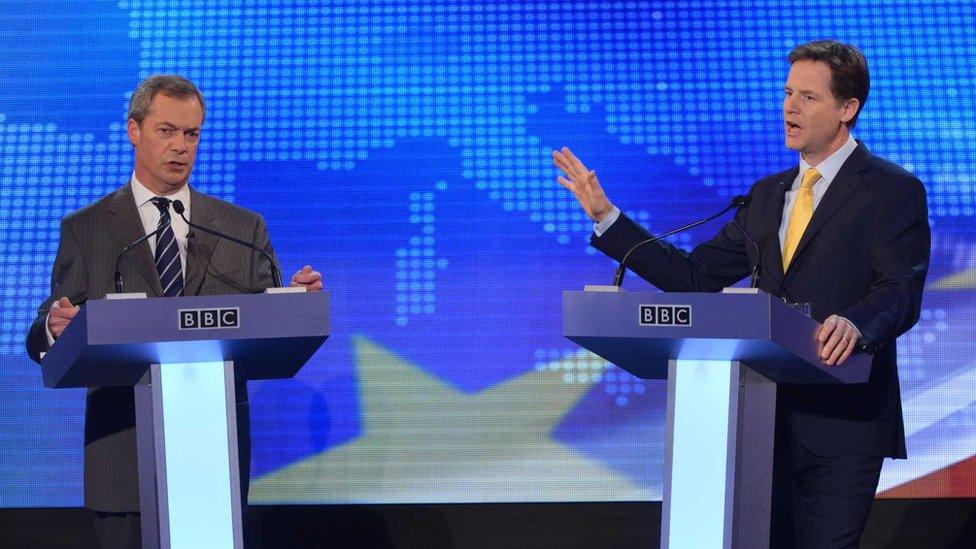
Farage v Clegg EU debate in 2014: Mr Farage won, according to opinion polls
Research by the House of Commons Library, external revealed how hard it was to solve the "laws made in Brussels" question. There are just so many types of law, adopted in different ways. Its estimate was between 15% and 50%, depending on the calculation used.
Just to add to the confusion, former EU Justice Commissioner Viviane Reding threw in the 70% figure - but she was referring to the amount of laws which the European Parliament "co-decides" with EU government ministers. That's not the same as the amount that becomes UK law.
For one thing, the UK has opted out of various EU laws in the areas of law and justice and governance of the eurozone.
The law certainly is an issue in this referendum, because one of Prime Minister David Cameron's reform demands is for the EU to hand back more powers to national parliaments.
Will Moy, director of the fact-checking organisation Full Fact, external, said the EU's complexity was a big challenge for journalists and researchers.
"The UK has robust mechanisms for dealing with facts, but where are the equivalent bodies in the EU?" he asked. His estimate for "laws made in Brussels" was 50% - a rough estimate, he stressed.
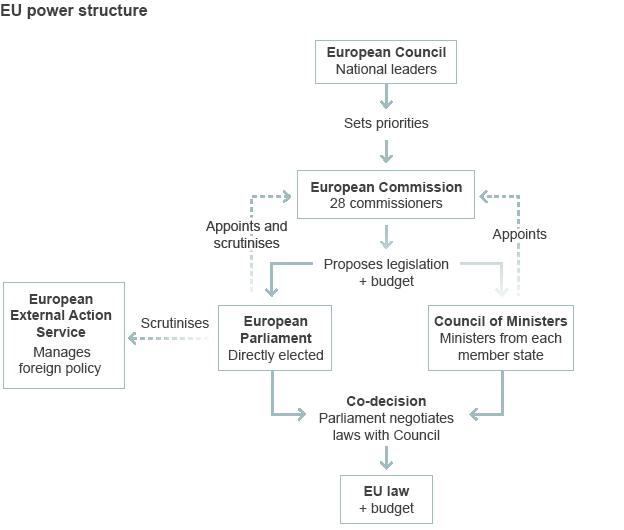
Several journalists contrasted the cut-and-thrust of combative Westminster politics with the consensus-driven, committee-heavy style of Brussels politics.
Not surprisingly most avoid trying to explain the EU's "acquis", "comitology" or "Luxembourg compromise".
But the mission to explain was certainly underlined at the conference. It was organised by The UK in a Changing Europe , external- an initiative to bridge the gap between the EU and British voters.
Mike Berry, of the Cardiff University School of Journalism, lamented the British public's "frighteningly low" level of understanding of the EU - and urged the media to do more explaining.
"I was very lost, with the difficult jargon, and Brussels has a tendency to suppress the drama," said Joshua Chaffin, recalling his work as a Brussels reporter for the Financial Times.
"But you can get to enjoy the sophistication of the game. So many different interpretations are often valid at the same time," he said.
The battle of the interpretations is already under way, as Mr Cameron well knows.

Further reading on the UK's EU referendum
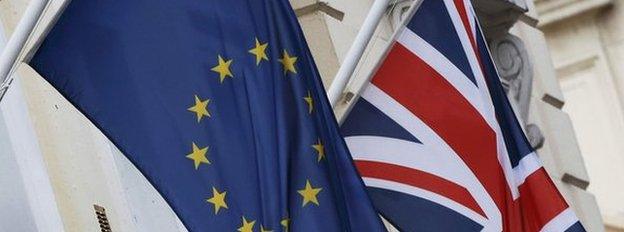
Guide: All you need to know about the referendum
EU renegotiation: Did Cameron get what he wanted?
Referendum timeline: What will happen when?
The view from Europe: What's in it for the others?

- Published8 February 2016
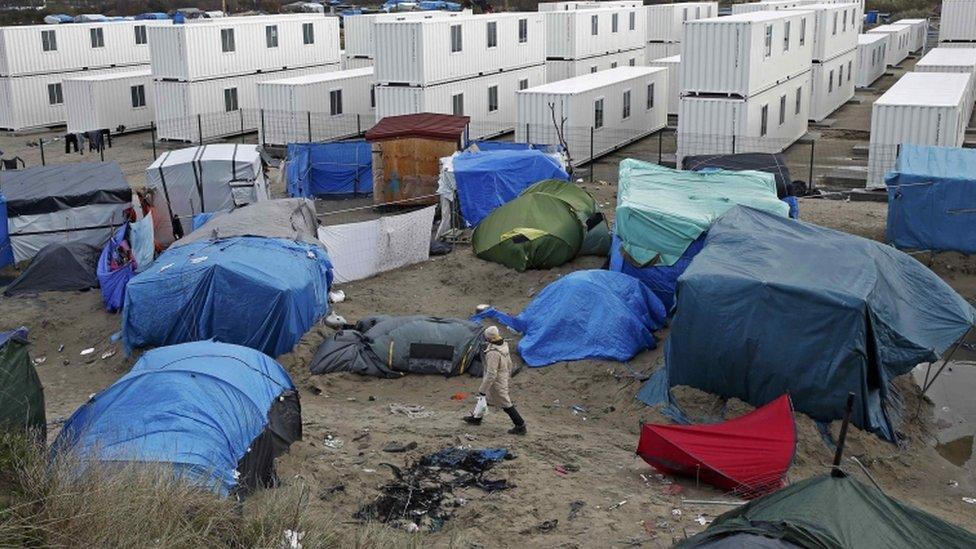
- Published16 July 2014
